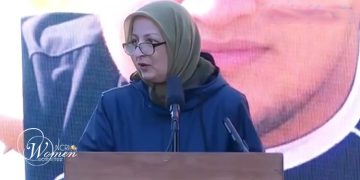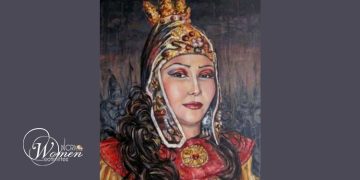Fatemeh Dorrat ol-Ma’ali (born 1877) was a distinguished and influential woman of the Qajar era who played a vital role in advancing girls’ education and cultural reforms in Iran.
Born into a wealthy and scholarly family in Tehran, her father, Shams ul-Ma’ali, was the personal physician to Naser al-Din Shah Qajar and founder of several boys’ schools. Growing up in such an intellectually rich environment inspired Fatemeh’s lifelong commitment to education, especially for girls.
In 1905, Fatemeh Dorrat ol-Ma’ali founded the Mokhaddarat Girls’ School in Tehran’s Arab neighborhood. This school is recognized as one of the earliest formal educational institutions for girls in Iran and marked a milestone in the history of female education. With over 200 students and a faculty including prominent teachers like Mr. Ahmad Khan for French and Fazel Aami for religious studies, the school provided comprehensive instruction in languages, mathematics, and theology. Fatemeh personally funded teachers’ salaries and ensured quality education was accessible to her students.
As the student population grew, Mokhaddarat School relocated to a larger building in Sadre Azam Noori Alley. In 1927, the school celebrated its first graduating class for girls who earned diplomas. Earlier, in 1923, she established another girls’ school named Dar al-Madares, which was later renamed Azarm and is currently known as Hazrat Fatemeh School, continuing its legacy to this day.
Beyond education, Fatemeh Dorrat ol-Ma’ali was an active member of the Patriotic Mokhaddarat Association, which opposed the 1907 Anglo-Russian Agreement that compromised Iran’s sovereignty. She organized women’s gatherings at her home, promoted boycotts of foreign goods, and supported domestic industries, contributing significantly to the nationalist movement. Her published articles in the Shekufeh magazine further spread her reformist ideas and helped rally public opposition to the treaty.
Fatemeh Dorrat ol-Ma’ali was also a gifted poet who engaged with prominent literary figures such as Iraj Mirza and Malek o-Sho’arā Bahār. She devoted considerable effort to charitable works, including caring for orphans and children without guardians.
A devout Muslim, she balanced her religious beliefs with a progressive vision for social welfare and education.
Fatemeh Dorrat ol-Ma’ali passed away in September 1924 and was buried in her family home on Saghābāshi Street in Tehran. Her legacy as a pioneer of girls’ education and a dedicated social activist remains influential in Iran’s history. Her children continued her cultural and political contributions, notably Shams al-Nahar and Shams al-Zoha who managed her schools, and Alireza Houshi, a physician and constitutionalist.
























